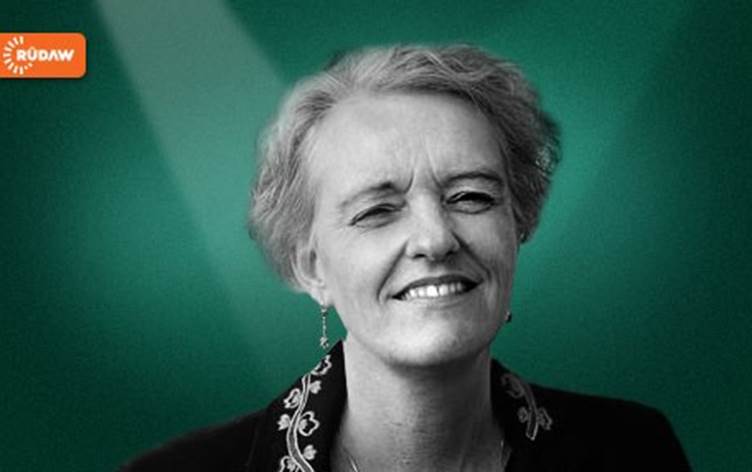Of the 500 Kurds that are known to have joined the self-proclaimed Islamic State, or ISIS, 50 have returned to Iraqi Kurdistan at some stage and for various reasons.
Upon returning, they were questioned by the Kurdish security police. Some remain in jail, some were released and being watched, according to the Ministry of Religion in the Kurdistan region’s capital of Erbil has said.
Elsewhere in the world, returnees from ISIS are the subject of heated discussion. In most European countries, jail awaits them if they are found guilty of membership of a terrorist organisation.
But jail might not be the best place for them because they might infect others there with their radical message. This process has happened time and again, and is partly why ISIS became so strong in the first place.
Yet solitary confinement is a hard measure that national and international laws only allow for limited reasons and time.
Still, allowing the returnees loose in society is almost equal to placing a time bomb. Those who were indoctrinated inside ISIS, cannot cut the ties easily.
If they do not get de-radicalized in a special program, they will remain an unpredictable element inside society. Yet these programs are often considered too soft, and no guarantee that a returnee has really turned his back on radical Islam.
Those who do not get psychological help definitely remain tied to the beliefs that were engrained in them by the radical leaders of the Islamic State.
Therefore, help needs to be given to all returnees, even in prison.
Even though the past has proven they should, Kurdish authorities have yet to develop a policy on this issue.
Radical Islam is not new in Kurdistan. Its popularity was fed by the suppression of the Iraqi dictator Saddam Hussein, his “Islamization” campaign in the 1990s, as well as the poverty that hit the Kurds during the embargoes at that time.
Islamic groups played an active role in the civil war and murders of the 90s.
From 2001-2003, a Salafist group occupied towns and villages on the Kurdish border with Iran. Ansar al-Islam, which operated in the mountainous area of Byara, was aligned to Al Qaeda. Many of its foreign fighters came from Afghanistan. Some of fighters are surely now with ISIS were there.
When the Ansar al-Islam base was bombed as part of the US invasion of 2003, the radicals scattered. Most of the foreigners fled to Iran, while many of the Kurds managed to go underground.
Some of these Kurds later joined Al Qaeda in Iraq led by Abu Musab al-Zarqawi, who was earlier involved in Ansar. Some joined other Salafi groups, like Ansar al-Sunna in Mosul. Others still now play a role in the Islamic political parties in Kurdistan and have been forgiven their violent past.
The present locations of some Ansar members is unknown. The Ministry of Religious Affairs has said it keeps a close watch on 74 Salafi imams – but what does it know about former members of Ansar al-Islam?
Some definitely are now with ISIS, but others are in Kurdistan, possibly secretly recruiting, teaching or even plotting – and were probably even involved in attacks in Kurdistan since 2003.
They can operate relatively freely, because many politicians in Kurdistan have hardly understood the threat radical Islam can pose.
This is proven from the surprise Mullah Swan, a Salafi imam from Erbil who turned to ISIS, caused. Those in the Ministry of Religious Affairs who knew him, were flabbergasted.
They had not understood that as a Salafist he was already close to the ideology of ISIS – he just had to turn from a supporter of a peaceful jihad into one of the violent holy war ISIS promotes.
For years, Salafists have been able to work freely in Kurdistan. Recently, some of the more radical books were banned, but most of the works that shape the Salafi discourse are available. The books used for religious education in schools were influenced by this discourse, and so were those using them.
Now, consider the poverty that exists for those not affiliated with a political party. There is also frustration from young people who can’t get a job after graduation, and the halt on government salaries that hit the poorest the hardest. The result is an explosive mix that could lead to radicalisation.
In a society in which radical preaching is common, the discourse of ISIS finds fertile ground. Sleeper cells that were found in Kurdistan have proven this.
To make sure those who return from ISIS cannot play a role in inflaming an already explosive situation, Kurdish politicians can no longer ignore their presence.
As in other countries struggling with the problem, a policy should be made based on analyses of the situation, but without treating returnees as aliens.
Such a policy will only work if returnees are treated fairly and openly, and as human beings.
--The views expressed in this article are those of the author and do not necessarily reflect the position of Rudaw.




Comments
Rudaw moderates all comments submitted on our website. We welcome comments which are relevant to the article and encourage further discussion about the issues that matter to you. We also welcome constructive criticism about Rudaw.
To be approved for publication, however, your comments must meet our community guidelines.
We will not tolerate the following: profanity, threats, personal attacks, vulgarity, abuse (such as sexism, racism, homophobia or xenophobia), or commercial or personal promotion.
Comments that do not meet our guidelines will be rejected. Comments are not edited – they are either approved or rejected.
Post a comment